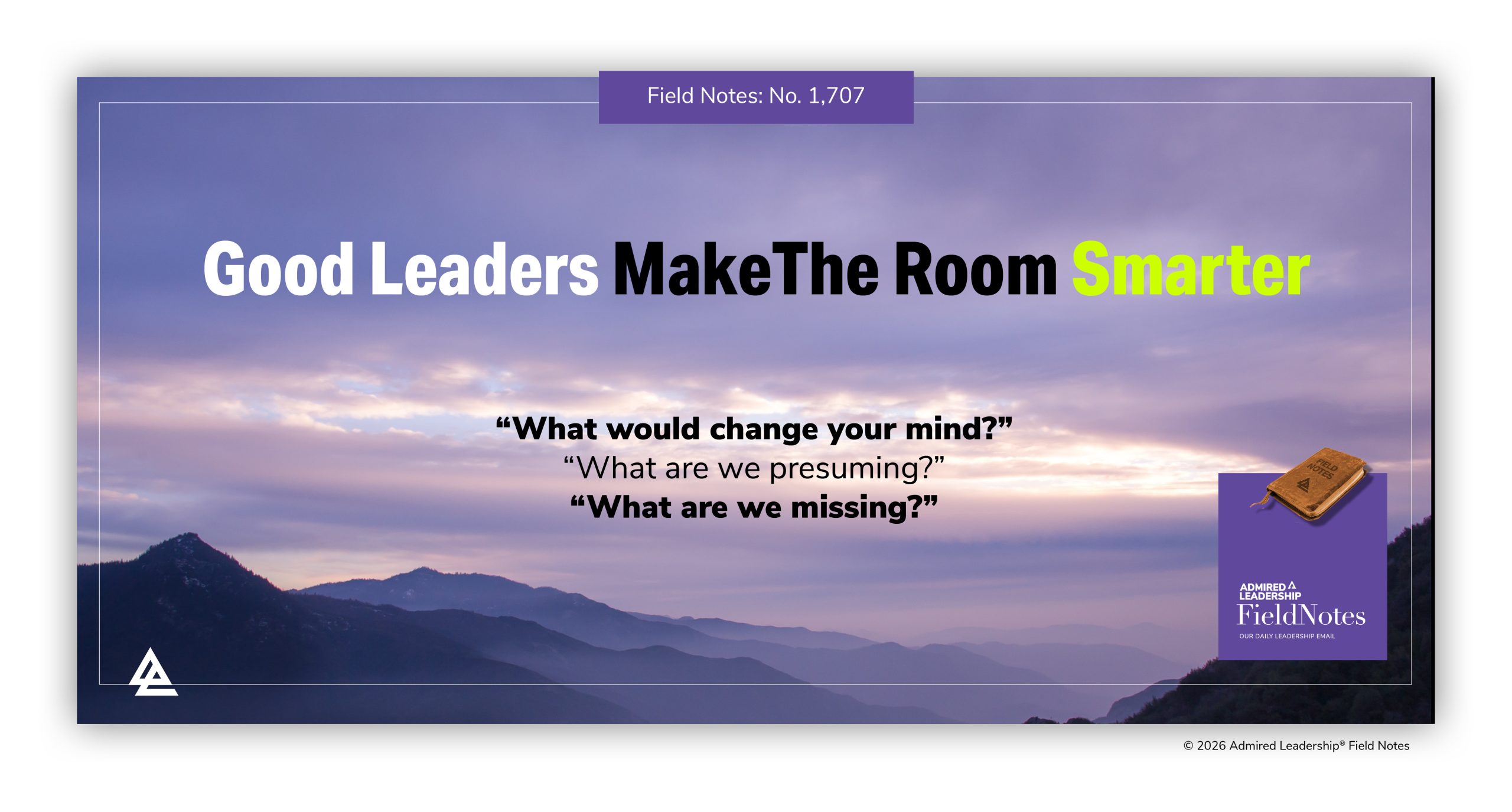Field notes
Field Notes
Our daily Field Notes email is just the kind of jumpstart you need. A fast read. Maybe less than a minute. Because sometimes it just takes one insight to change the trajectory of the day.
Search Field Notes
When Making Requests, Are You Speaking for Yourself or for the Organization?
How Leaders Talk About AI
Can Influence Acceptance or Resistance
Don’t Decide for Others by Withholding the Invitation
Call Out and Get Curious About a Team Member’s Improvement
Motivation largely lives inside the individual. Leaders can’t force someone to care or increase their inner drive.
Thankfully, high-performing team members arrive armed with a healthy dose of self-motivation. They bring ambition, pride, and a commitment to excellence, no matter where they work or who they work with.






